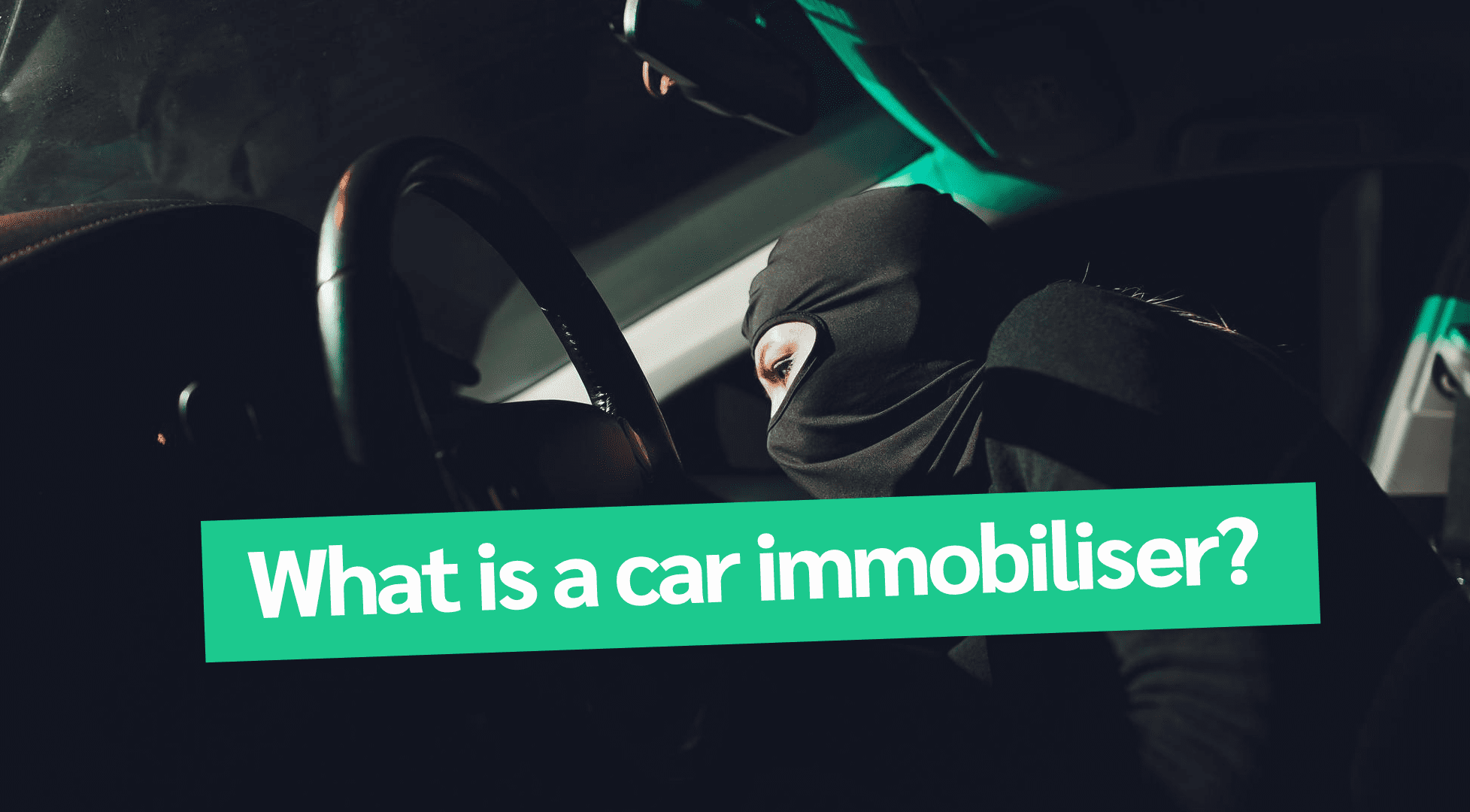If you’re a car owner—especially if you own a high-value or prestige vehicle—you know that keeping it safe is a priority. Car immobilisers are key to modern vehicle security, making it harder for thieves to steal your car while giving you peace of mind. This guide will walk you through everything you need to know about immobilisers, from how they work to the types available and how they integrate with other security measures.
What is an Immobiliser?
A car immobiliser is an anti-theft device built into a vehicle’s electronic system, designed to prevent the engine from starting without the correct key or key fob. Introduced in the early 1990s, immobilisers have become standard in all modern vehicles, providing crucial security against theft. By preventing hotwiring and unauthorised engine starts, immobilisers play an essential role in safeguarding vehicles and can even reduce insurance premiums.
How do immobilisers work?
The technology behind immobilisers varies but is grounded in one principle: if the correct code from the key or key fob isn’t detected, the engine won’t start. Most immobilisers use a transponder that communicates with the car’s electronic control unit (ECU), confirming the correct code before activating the fuel system, ignition, and starter motor.
In older vehicles, immobilisers required a physical action, like pressing a button or inputting a code via keypad. Newer systems are more advanced and may use encrypted codes that change with each use, making them highly secure and difficult to bypass.
Types of Car Immobilisers
Factory-installed immobilisers
Integrated directly by the manufacturer, these systems are well-suited to the vehicle’s electronics and usually activate automatically when the key is removed.
Aftermarket immobilisers
Ideal for older cars or those without a factory-fitted immobiliser. Aftermarket systems offer customisation options and can include added features like pin codes or smartphone integration.
Advanced immobiliser systems for prestige vehicles
Prestige vehicles may feature biometric authentication, keyless entry, or smartphone-controlled immobilisers, offering superior security with state-of-the-art technology.
Is Your Car Equipped with an Immobiliser?
Since October 1998, immobilisers have been legally required in new cars. If you’re unsure about your car’s security system, check the owner’s manual or consult your dealership. Even if your vehicle was manufactured before 1998, it may still have an immobiliser, particularly if it’s a luxury model from the early 90s.
Benefits of Car Immobilisers
Theft deterrent
Immobilisers are electronic devices that prevent theft of modern cars. Their presence makes it difficult for thieves to hotwire or bypass a car’s ignition system.
Insurance discounts
Many insurers offer discounts on policies for vehicles equipped with immobilisers, reflecting the lower risk of theft.
Peace of mind for car owners
Knowing your car has an immobiliser can provide additional peace of mind, especially if it’s a high-value or prestige vehicle.
Types of Thatcham-Approved Immobilisers and Security Ratings
Thatcham Research, a leader in vehicle security, has established a grading system for immobilisers to ensure quality and reliability. These categories can help you understand the level of security different systems offer:
- Category 1: Alarm and electronic immobiliser, controlling multiple vehicle systems with advanced detection.
- Category 2: Electronic immobiliser, focused on preventing ignition start.
- Category 2/1: Vehicles with a Category 2 immobiliser upgraded to Category 1 security.
- Category 3: Mechanical immobilisers, such as steering wheel locks.
- Category S5: Post-theft tracking with remote immobilisation and driver identification.
- Category S7: Tracking only, without driver recognition or remote immobilisation.
- Q Class: Non-categorised aftermarket devices that do not meet Thatcham’s standard ratings.
Other Vehicle Security Options
For optimal vehicle protection, combine your immobiliser with additional security systems:
- Alarm Systems: Alerts owners and deters thieves with sound and light.
- GPS Trackers: Track your car’s location in real-time, aiding in recovery if stolen.
- Physical Locks: Wheel clamps, steering locks, and gear locks offer physical deterrents.
Adding multiple layers of security can make it much harder for thieves, offering a comprehensive protection strategy.
What if My Immobiliser Malfunctions?
While immobiliser failures are rare, they can occur. Signs of an issue include failure to start, random alarm triggers, or trouble locking/unlocking doors. Most issues stem from low key fob batteries, which can often be replaced easily. If problems persist, consult a mechanic to investigate potential wiring or electrical issues.
Can Car Thieves Bypass Immobilisers?
Unfortunately, no system is foolproof. Techniques like relay theft, where a signal from your key is cloned, have become more common with keyless entry and start vehicles. To protect against this, consider using a Faraday bag to block signals from your key or disabling the keyless entry function if possible.
Should I Install an Immobiliser in an Older Car?
If your vehicle predates immobiliser mandates, installing one is a wise investment. Doing so can reduce theft risks and may even lower insurance premiums. For maximum peace of mind, ensure that any installed system is Thatcham-approved.
Factors to Consider When Choosing a Car Immobiliser
Compatibility with the vehicle
When choosing a car immobiliser, it is important to ensure that the system is compatible with the make and model of the vehicle. Some immobiliser systems are designed specifically for certain vehicle brands, so compatibility should be carefully considered.
Level of security offered
Different immobiliser systems offer varying levels of security features. It is important to assess the specific security needs of the vehicle and choose an immobiliser system that provides the desired level of protection.
Installation and maintenance requirements
Consider the installation and maintenance requirements of the immobiliser system. Some systems may require professional installation, while others can be easily installed by car owners. Additionally, regular maintenance and software updates may be necessary to ensure the continued effectiveness of the immobiliser.
Additional Vehicle Security Systems
In addition to car immobilisers, there are other vehicle security systems that car owners can consider to enhance the protection of their vehicles:
Alarm systems
Car alarms are designed to alert the owner and surrounding individuals when unauthorised access or tampering is detected. They serve as a visible deterrent to potential thieves and vandals.
GPS tracking devices
GPS tracking devices can be used to monitor the location and movement of a vehicle in real-time. In the event of theft, these devices can assist law enforcement in recovering the vehicle quickly.
GPSBob offer a fantastic 4G GPS tracker + immobiliser device giving you the best of both worlds and full peace of mind over the security of your vehicle.
Steering wheel locks
Steering wheel locks are physical deterrents that prevent the steering wheel from being turned, making it difficult for thieves to drive the vehicle even if they manage to start the engine.
Tips for Maximising Vehicle Security
Parking in well-lit areas
When parking, especially at night, it is advisable to choose well-lit and secure parking areas. This reduces the risk of unauthorised access and provides added security for the vehicle.
Using multiple security layers
To maximise vehicle security, consider using multiple security layers such as car immobilisers, alarm systems, and steering wheel locks. This multi-layered approach can significantly deter potential thieves.
Regular maintenance of security systems
It is important to regularly inspect and maintain vehicle security systems to ensure their continued effectiveness. This includes checking the functionality of car immobilisers, alarm systems, and GPS tracking devices.
Conclusion
Investing in a reliable car immobiliser is crucial for car owners, especially those with prestige or expensive vehicles. The presence of a car immobiliser not only serves as a strong deterrent to car theft but also provides peace of mind and potential insurance discounts.
When choosing a car immobiliser, it is important to consider factors such as compatibility, level of security offered, and installation requirements. Additionally, incorporating additional security systems and following best practices for vehicle security can further enhance the protection of the vehicle.
In conclusion, vehicle security is a top priority for car owners, and investing in advanced security systems such as car immobilisers is essential for safeguarding vehicles against theft and unauthorised use.
In this comprehensive guide, car owners, especially those with prestige or expensive vehicles, have gained a deep understanding of car immobilisers and vehicle security systems.
The article delved into the intricacies of these systems, offering practical guidance and insights to help security-conscious car owners make informed decisions about protecting their vehicles.
Whether you’re a new car owner or a long-time enthusiast, this article has equipped you with the knowledge you need to safeguard your vehicle effectively.




